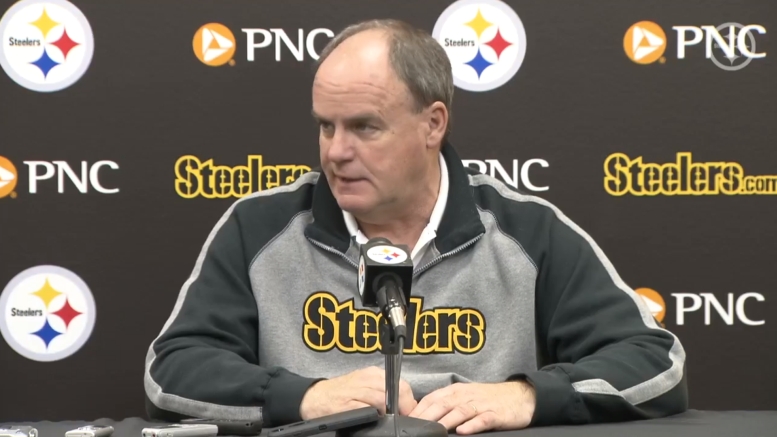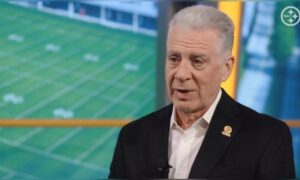From cutdown day through a little over a week into the regular season, the Pittsburgh Steelers were able to acquire draft capital for two players whom they viewed as expendable, at least for the right price.
In parting with a 2021 seventh-round pick, they got back a sixth-round pick in that same year in exchange for Jerald Hawkins, an offensive lineman who was not going to make the roster and was in the final year of his rookie contract. That they were able to get anything for him, knowing that he was in their plans, was an easy win.
Soon after the season-opening loss to the New England Patriots, the Steelers also moved third-string quarterback Joshua Dobbs, sending him to the Jacksonville Jaguars in exchange for a fifth-round pick in next year’s draft. reportedly, they were interested in moving him on cutdown day, but didn’t find an offer they liked. That changed after Nick Foles’ injury.
And then the front office quickly utilized the acquisition of those picks—though not necessarily the picks themselves—to help facilitate last night’s trade for Miami Dolphins defensive back Minkah Fitzpatrick. While the meat of the trade was a 2020 first-round pick, there were four other draft picks dealt.
In addition to acquiring Fitzpatrick, the Steelers will also receive a 2020 fourth-round pick and a 2021 seventh-round pick. They gave up a fifth-round pick in 2020 and a sixth-round pick in 2021.
While it wasn’t announced which fifth- and sixth-round picks they gave up in those two years, they had two of each because of the Dobbs and Hawkins trades, and so they were comfortable specifically moving those pieces. It’s certainly not a coincidence that they lined up the way they did.
The Steelers are more reluctant than many teams to make trades because they hold certain philosophies about the cost of draft capital, which is also relative not just to the base worth of a pick in a vacuum but to their total suite of picks in a given year.
Earlier this year, for example, general manager Kevin Colbert essentially said that, had they not acquired an additional third-round pick as part of the Antonio Brown trade (an early pick that was 66th overall, close to second-round territory), they would not have been able to make the move up for Devin Bush, because they value having at least two selections on the second day of the draft, spanning the second and third rounds.
They have a history of doing this. They gave up a third-round pick from 2014 in the 2013 NFL Draft for a fourth-round pick that year because they knew they would be getting a third-round compensatory pick in 2014. They used the seventh-round pick they got from Ross Cockrell in 2018 to move up in the third round to draft Mason Rudolph.








